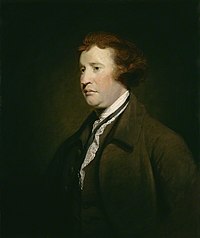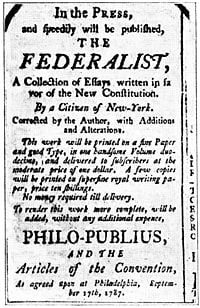The political as well as economic environment today is far removed from the days of previous shut-downs. In the mid-90s, the rare similarities to today were a Democrat in office dueling with Conservatives in Congress on the heels of liberal spending and failure to produce government budgets. What has changed is the birth of the Tea Party, a citizenry highly disgruntled with the man in the Oval Office (to include his own constituency), and a deficit as well as national debt unmatched in the history of the country.
Teachers Unions 101: “A” is for “Agitation”
If public school teachers spent more time teaching in classrooms and less time community-organizing in political war rooms, maybe taxpayers wouldn’t feel as ripped off as they do. Before the Big Labor bosses start complaining about “teacher-bashing,” let’s be clear: An increasing number of rank-and-file teachers feel exactly the same way.
General Motors-This Is What Government Ownership Looks Like
We have twice already looked at the debacle that is General Motors (GM) under the TARP-bought, government-sponsored guidance of Chief Executive Officer (CEO) Dan Akerson.
It’s been terrible. And it’s getting much, much worse.
Katharine Weymouth Stands Up to Unions, Rescues the Washington Post
The Washington Post exists today because of cost-cutting and quality improvements instituted by publisher Katharine Weymouth. But that hasn’t stopped some Post reporters and the Newspaper Guild from complaining about her compensation.
For her efforts, Weymouth received more than $2 million last year, mostly in bonuses tied to profitability. The New York Post reported that reporters are “fuming” over her pay, given that the paper has been cutting costs, in part by offering reporters buyouts to leave.
Former British Health System Director Dies After Hospital Delays Life-Saving Operation Four Times
A tragic story and a cautionary tale regarding government-run healthcare and the rationing it inevitably requires. A chilling preview of things to come under Obamacare:
A former NHS director died after waiting for nine months for an operation – at her own hospital. Margaret Hutchon, a former mayor, had been waiting since last June for a follow-up stomach operation at Broomfield Hospital in Chelmsford, Essex.
Edmund Burke (1729-1797)
Edmund Burke was an Anglo-Irish statesman, author, orator, political theorist, and philosopher who, after moving to England, served for many years in the House of Commons of Great Britain as a member of the Whig party. He is mainly remembered for his support of the cause of the American Revolutionaries, and for his later opposition to the French Revolution.
“Hoodwinked:How Intellectual Hucksters Have Hijacked American Culture”-Jack Cashill
It takes a village to perpetrate a cultural fraud: Behind every hoaxster playing fast and loose with facts stands a teeming mansion of elite supporters, from professionals and educators to celebrities and journalists. So says Jack Cashill in Hoodwinked, his executive summary of the cultural frauds of the Left over the past century.
The Federalist Papers
The Federalist Papers are a series of 85 articles arguing for the ratification of the United States Constitution. They were first published serially from October 1787 to August 1788 in New York City newspapers. A compilation, called The Federalist, was published in 1788. The Federalist Papers serve as a primary source for interpretation of the Constitution, as they outline the philosophy and motivation of the proposed system of government. The authors of the Federalist Papers also used the opportunity to interpret certain provisions of the constitution to (i) influence the vote on ratification and (ii) influence future interpretations of the provisions in question.
The Avalon Project-Documents in Law, History & Diplomacy
The Avalon Project will mount digital documents relevant to the fields of Law, History, Economics, Politics, Diplomacy and Government. We do not intend to mount only static text but rather to add value to the text by linking to supporting documents expressly referred to in the body of the text.







